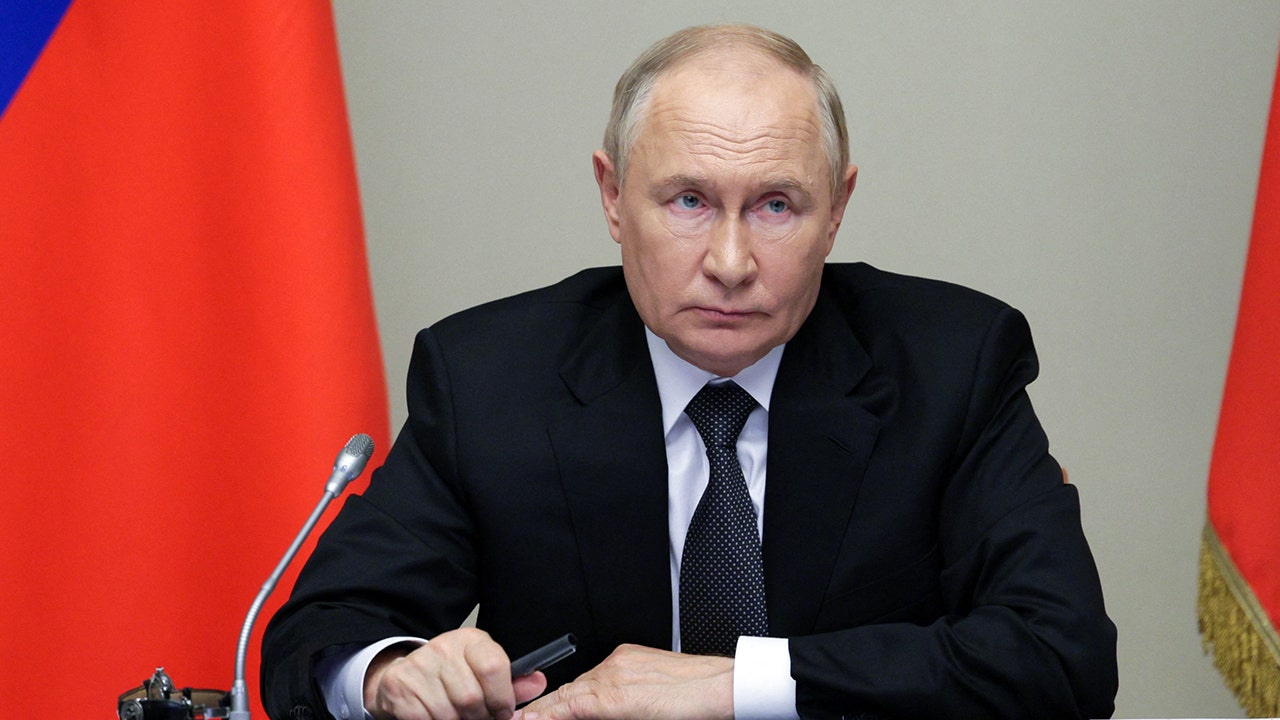- Truce went into effect at 10 p.m. (1900 GMT)
- Ceasefire brokered by Egypt
- Ends worst flare-up since 2021
World
Israel and Palestinian Islamic Jihad agree Gaza truce
/cloudfront-us-east-2.images.arcpublishing.com/reuters/IZG46LBBKVMUJGO2RWZPBMKN6U.jpg)
GAZA/JERUSALEM, May 13 (Reuters) – A truce between Israel and the militant Islamic Jihad group officially came into effect late on Saturday night, with an Egyptian-mediated ceasefire agreement meant to end the worst episode of cross-border fire since a 10-day war in 2021.
As fighting tapered off, streets in Gaza that had largely been deserted filled with Palestinians. Some people cheered and honked car horns while others headed to the homes of people killed in the fighting to show their respect.
“In light of the agreement of the Palestinian and the Israeli side, Egypt announces a ceasefire between the Palestinian and the Israeli sides has been reached,” a text of the agreement seen by Reuters read.
“The two sides will abide by the ceasefire which will include an end to targeting civilians, house demolition, an end to targeting individuals immediately when the ceasefire goes into effect,” it said.
Israel’s national security adviser thanked Egyptian President Abdel Fattah al-Sisi for Cairo’s efforts, a statement from Prime Minister Benjamin Netanyahu said.
“Quiet will be met with quiet and if Israel will be attacked or threatened, it shall continue to do what it must in order to defend itself,” the statement said.
Islamic Jihad also confirmed the agreement. “We declare our acceptance of the Egyptian announcement and we will abide by it as long as the occupation (Israel) abides by it,” the group’s spokesman, Dawoud Shehab, said.
[1/6] A man stands in a damaged building at the site of deadly Israeli raid in Balata camp in the Israeli-occupied West Bank May 13, 2023. REUTERS/Raneen Sawafta
Even as the truce was being finalised, the two sides kept up firing, with air raid sirens sounding as far as Tel Aviv’s suburbs and Israel’s military announcing it had hit Islamic Jihad targets in response to rocket fire.
Though happy about news of the truce, some Gaza residents, weary of repeated flare-ups, feared that another round of fighting would erupt before long. “We want the truce to be based on principles, not like in the past when after a calm (truce) people died,” said resident Munir Marouf, 43.
Israel launched the latest round of airstrikes in the early hours of Tuesday, announcing that it was targeting Islamic Jihad commanders who had planned attacks in Israel.
In response, the Iranian-backed group fired more than 1,000 rockets, sending Israelis fleeing into bomb shelters.
During the five days of the campaign, Israel killed six senior Islamic Jihad commanders and destroyed a number of military installations.
At least 10 civilians, including women and children, were also killed in Gaza during the fighting, and two people – an Israeli woman and a Palestinian labourer – were killed by Palestinian rocket fire in Israel.
Islamic Jihad spurns coexistence with Israel and preaches its destruction. Top ministers of Israel’s religious nationalist government rule out any state sought by Palestinians in territories captured by Israel in the 1967 Middle East war.
Reporting by Nidal al-Mughrabi and Maayan Lubell; Editing by William Mallard
Our Standards: The Thomson Reuters Trust Principles.

Continue Reading
World
US briefed Ukraine ahead of Putin's 'experimental Intermediate-range ballistic' attack

A U.S. official on Thursday confirmed to Fox News Digital that Ukrainian authorities were briefed ahead of Russia’s “experimental Intermediate-range ballistic missile” attack that this type of weapon may be used against Ukraine in order to help it prepare.
Russian President Vladimir Putin confirmed the attack Thursday evening local time in an address to the nation and said it was in direct response to the U.S. and the U.K. jointly approving Ukraine’s use of Western-supplied long-range missiles to target Russia.
It remains unclear if there were any casualties in the attack on the city of Dnipro, which was originally reported as an Intercontinental Ballistic Missile (ICBM) strike, and which would have marked the first time such a weapon had been used during a time of war, sending panic across the globe.
1,000 DAYS OF WAR IN UKRAINE AS ZELENSKYY DOUBLES DOWN ON AERIAL OPTIONS WITH ATACMS, DRONES AND MISSILES
Putin and U.S. sources have since confirmed the strike was not an ICBM, but the Kremlin chief also claimed that the weapon used poses a significant challenge for Western nations.
“The missiles attack targets at a speed of MACH 10. That’s 2.5 miles per second,” Putin said according to a translation. “The world’s current air defense systems and the missile defense systems developed by the Americans in Europe do not intercept such missiles.”
Fox News Digital could not immediately verify whether the U.S. or its NATO allies are capable of defending against this latest missile, dubbed the Oreshnik.
But according to one U.S. official, Putin may be playing up his abilities in a move to intimidate the West and Ukraine.
A Yars intercontinental ballistic missile is test-fired in northwestern Russia on Oct. 29. (Russian Defense Ministry Press Service via AP)
“While we take all threats against Ukraine seriously, it is important to keep a few key facts in mind: Russia likely possesses only a handful of these experimental missiles,” the official told Fox News Digital. “Ukraine has withstood countless attacks from Russia, including from missiles with significantly larger warheads than this weapon.
“Let me be clear: Russia may be seeking to use this capability to try to intimidate Ukraine and its supporters, or generate attention in the information space, but it will not be a game-changer in this conflict,” the official added.
US EMBASSY IN KYIV CLOSED AS ‘POTENTIAL SIGNIFICANT AIR ATTACK’ LOOMS
Following President Biden’s position reversal this week to allow Ukraine to use U.S.-supplied long-range Army Tactical Missile Systems (ATACMS) against the Russian homeland, Kyiv immediately levied strikes against a military arsenal in the Russian region of Bryansk, more than 70 miles from Ukraine’s border.
While Ukrainian troops are the ones to officially fire the sophisticated missiles, the weapons system still relies on U.S. satellites to hit its target — an issue Putin touched on in his unannounced speech Thursday.
“We are testing the Oreshnik missile systems in combat conditions in response to NATO countries’ aggressive actions against Russia. We will decide on the further deployment of intermediate-range and shorter-range missiles depending on the actions of the U.S. and its satellites,” he said.
CLICK TO GET THE FOX NEWS APP

Firefighters work at the site of a Russian missile strike in Dnipro, Ukraine, on Thursday. (Press service of the State Emergency Service of Ukraine in Dnipropetrovsk region/Handout via Reuters)
Putin claimed Russia will alert Ukrainian citizens of an impending attack like the strike he carried out on Thursday, though it remains unclear if he issued a warning to the Ukrainians living in Dnipro.
The Kremlin chief said the “defense industry” was targeted, though images released by the Ukrainian ministry of defense showed what appeared to be civilian infrastructure was also caught in the fray.
The Pentagon on Thursday confirmed that Russia informed the U.S. of the impending attack, which corresponds with information obtained by Fox News Digital, but it is unclear if Moscow clarified which Ukrainian city was the intended target.
A U.S. official told Fox News Digital that the U.S. is committed to helping Ukraine bolster its air defense systems and has done so already by supplying Ukraine with hundreds of additional Patriot and Advanced Medium-Range Air-to-Air Missiles.
World
South Korea says Russia sent North Korea missiles in exchange for troops

South Korea’s national security adviser says North plans to use the weapons to defend its airspace over the capital.
Russia has provided North Korea with anti-air missiles and air defence equipment in return for sending soldiers to support its war against Ukraine, according to a top South Korean official.
Asked what the North stood to gain from dispatching an estimated 10,000 troops to Russia, South Korea’s national security adviser Shin Won-sik said Moscow had given Pyongyang economic and military technology support.
“It is understood that North Korea has been provided with related equipment and anti-aircraft missiles to strengthen Pyongyang’s weak air defence system,” Shin told South Korean broadcaster SBS in an interview aired on Friday.
At a military exhibition in the capital, Pyongyang, North Korean leader Kim Jong Un on Friday called for developing and upgrading “ultra-modern” versions of weaponry, and pledged to keep advancing defence capabilities, state media reported.
Russia this month ratified a landmark mutual defence pact with North Korea as Ukrainian officials reported clashes with Pyongyang’s soldiers on the front lines.
The treaty was signed in Pyongyang in June during a state visit by Russian President Vladimir Putin. It obligates both states to provide military assistance “without delay” in the case of an attack on the other and to cooperate internationally to oppose Western sanctions.
South Korea’s National Intelligence Service told lawmakers this week that the troops deployed to Russia are believed to have been assigned to an airborne brigade and marine corps on the ground, with some of the soldiers having already entered combat, the Yonhap news agency reported.
The intelligence agency also said recently that North Korea had sent more than 13,000 containers of artillery, missiles and other conventional arms to Russia since August 2023 to replenish its dwindling weapons stockpiles.
Experts say Pyongyang could be using Ukraine as a means of realigning foreign policy.
By sending soldiers, North Korea is positioning itself within the Russian war economy as a supplier of weapons, military support and labour – potentially bypassing its traditional ally, neighbour and main trading partner, China, according to analysts.
Russia can also provide North Korea access to its vast natural resources, such as oil and gas, they say.
North Korean Foreign Minister Choe Son Hui recently visited Moscow and said her country would “stand firmly by our Russian comrades until victory day“.
North Korea said last month that any troop deployment to Russia would be “an act conforming with the regulations of international law”, but stopped short of confirming that it had sent soldiers.
The deployment has led to a shift in tone from Seoul, which had so far resisted calls to send weapons to Kyiv. However, President Yoon Suk-yeol indicated South Korea might change its longstanding policy of not providing arms to countries in conflict.
World
How Indian Billionaire Gautam Adani's Alleged Bribery Scheme Took off and Unraveled
By Luc Cohen NEW YORK (Reuters) – In June of 2020, a renewable energy company owned by Indian billionaire Gautam Adani won what it called the single largest solar development bid ever awarded: an agreement to supply 8 gigawatts of electricity to a state-owned power company. But there was a problem.
-
Business1 week ago
Column: OpenAI just scored a huge victory in a copyright case … or did it?
-

 Health1 week ago
Health1 week agoBird flu leaves teen in critical condition after country's first reported case
-

 Business5 days ago
Business5 days agoColumn: Molly White's message for journalists going freelance — be ready for the pitfalls
-
World1 week ago
Sarah Palin, NY Times Have Explored Settlement, as Judge Sets Defamation Retrial
-

 Politics4 days ago
Politics4 days agoTrump taps FCC member Brendan Carr to lead agency: 'Warrior for Free Speech'
-

 Science2 days ago
Science2 days agoTrump nominates Dr. Oz to head Medicare and Medicaid and help take on 'illness industrial complex'
-
/cdn.vox-cdn.com/uploads/chorus_asset/file/25739950/247386_Elon_Musk_Open_AI_CVirginia.jpg)
/cdn.vox-cdn.com/uploads/chorus_asset/file/25739950/247386_Elon_Musk_Open_AI_CVirginia.jpg) Technology4 days ago
Technology4 days agoInside Elon Musk’s messy breakup with OpenAI
-

 Lifestyle5 days ago
Lifestyle5 days agoSome in the U.S. farm industry are alarmed by Trump's embrace of RFK Jr. and tariffs










/cdn.vox-cdn.com/uploads/chorus_asset/file/25703800/247350_CMBF_PACKAGE_ART_CVirginia_LEDE_2040x1360.jpg)








